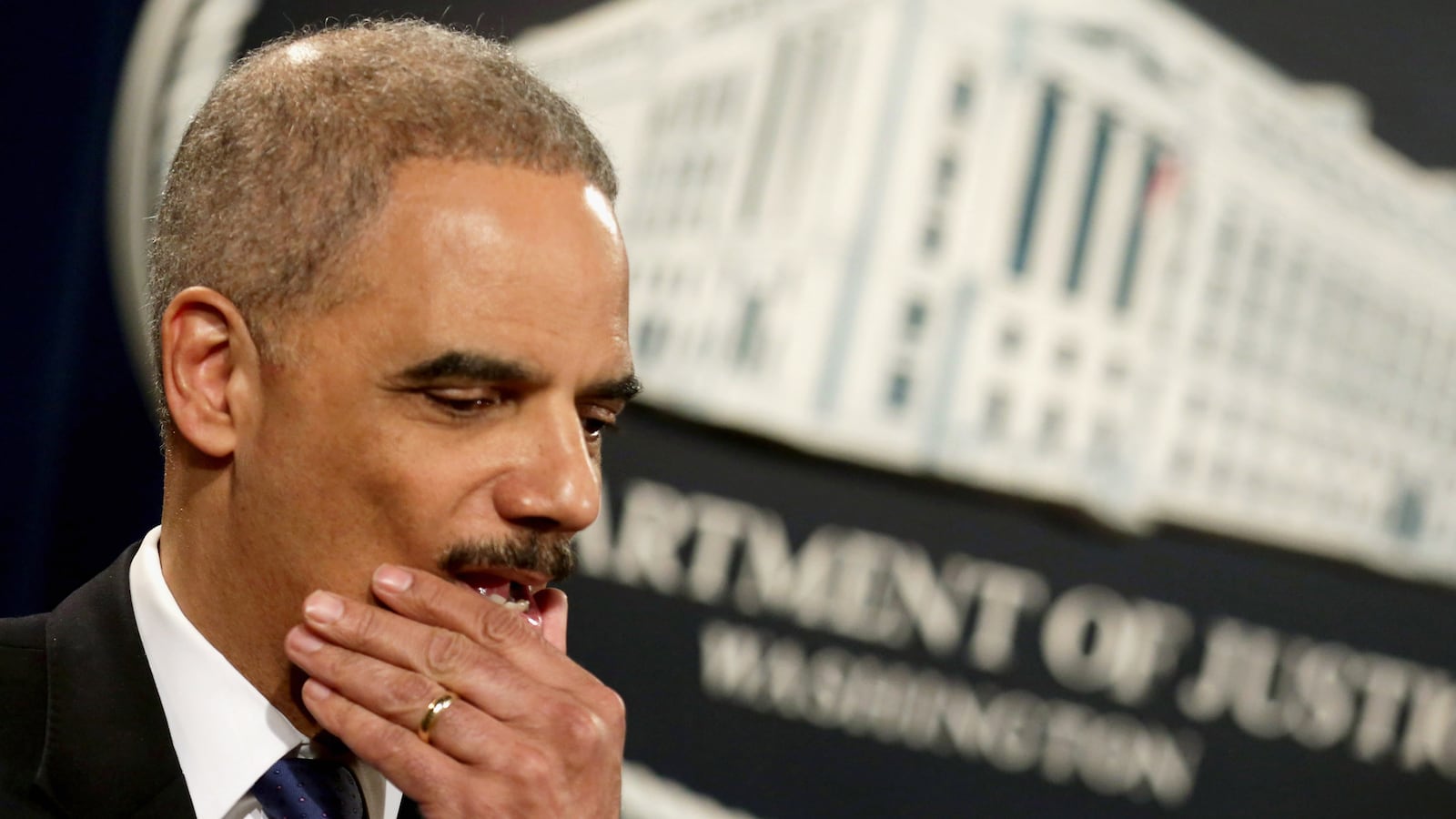In the war on terror, the Obama administration has eschewed putting military forces on the ground in favor of surgically precise drone strikes. The campaign is constitutionally dubious, although the program’s backers say it is more humane, as it means the loss of fewer innocent lives, and more effective. That the drone program is waged mostly in the shadows, and thus keeps gruesome images off television screens, is considered by the administration to be a benefit as well.

The drone program comes to mind as the Department of Justice fends off questions this week about its decision to subpoena two months of phone and email records from reporters and editors at the Associated Press. Typically, when federal agents want a reporter to disclose a source, the reporter is subpoenaed and forced to name names or face jail time. That happened to Judith Miller and, more recently, to Jeffrey Sterling.
But like the drone strikes, Justice Department officials say the subpoena method is, in the end, more efficient and more humane. It keeps reporters loath to give up their sources out of jail, and it permits federal officials to track down leakers more quickly. And the surgical strike on newsroom records avoids months and months of high-profile court cases, with every news outlet in the country screaming about the First Amendment.
“From the department’s perspective, this is a much less aggressive step than putting someone in front of a grand jury or putting them on trial,” said Matthew Miller, a former spokesman for Attorney General Eric Holder. “You’re trying to balance reporters’ needs and ability to do their job and the department’s need to fully investigate a crime, and this step achieves that balance.”
Miller noted that Justice officials wanted to avoid the subpoena. They interviewed 550 people in connection with the AP case, he said, but the May 2012 leak, which disclosed a CIA operation in Yemen that disrupted an al Qaeda plot to blow up a U.S.-bound airplane, was serious.
“I know Adam Goldman and Matt Apuzzo [the two AP reporters who wrote the original stories], and they would rather sit in jail [rather than reveal their sources], as would a lot of really good reporters,” he said. “Having reporters sit in jail is a problem with moving forward with this case.”
But others disagree that the subpoena approach is preferred.
Alberto Gonzales, a former attorney general for the Bush administration, said that while he did not know the particulars of the case, the decision was “highly unusual.” It is likely, he added, that someone was killed or some critical piece of intelligence compromised due to the leak.
“When I was the attorney general, the department, both before and after [my tenure], tried to be very respectful in dealing with the media, because we understood that the media has a special place in the society,” he said. “So we try to accommodate the competing interests of the media and the competing interests of the criminal-justice system.”
In such situations, Gonzales, who as attorney general investigated The New York Times for publishing classified information about a domestic wiretapping program, said the government has to be careful that anger at leakers does not lead to irrational decision making.
“Obviously the government goes to great lengths to protect our intelligence, to protect sensitive law-enforcement information, and when it leaks, it is frustrating, there is no question about that,” he said. “And it puts the government in the very difficult position of trying to balance what we are going to do here. This is against the law, and we want to discourage lawbreaking, we want to prosecute lawbreakers, and we can’t do that without this information. But we are also mindful of the fact that the media, quite candidly, generally writ large is going to be very unhappy by this kind of action, and they are going to be quite critical.”
First Amendment advocates and attorneys are comparing the actions by the Department of Justice not to a drone strike but to a dragnet. If the department needed the information, they say, it should have gone through the embarrassment of hauling reporters and editors before judges and sending them off to jail if they failed to name their sources. Yes, it would have been embarrassing, but a free press requires it.
“It is certainly one of the most intense intrusions by the government into a pressroom that I can remember,” said Floyd Abrams, the First Amendment lawyer who most famously represented The New York Times in the Pentagon papers case. He compared the Justice Department’s action to the FBI storming the AP’s newsroom and seizing telephone and computer records. Unless an agent is on the verge of being killed, he added, “this is an egregious overreaction.”
“Why couldn’t they put this issue before a judge? What they have done is foreclose any meaningful response by the AP. This isn’t just seeking a record of one journalist for one day. This is breaking and entering into the heart of the journalistic process of the Associated Press.”






